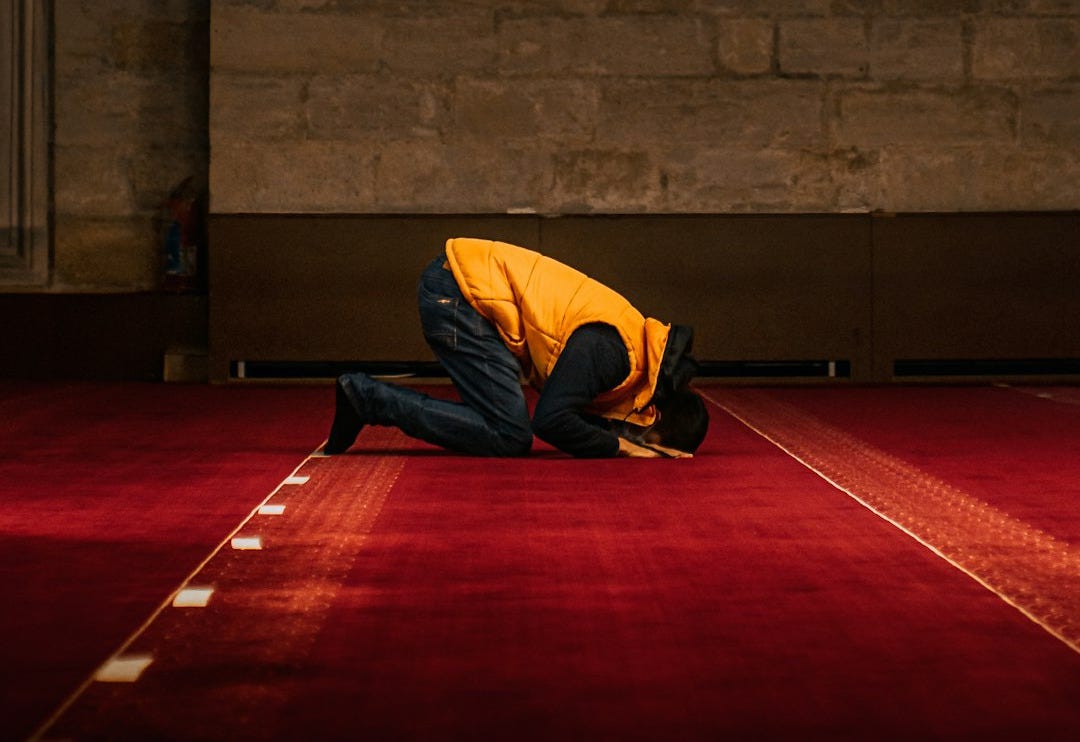
LISEZ L’ORIGINALE EN FRANÇAIS ICI
Determined to tighten the principles of Quebec’s Law on State Secularism, the CAQ government has been considering, since late summer, to restrict the freedom of praying in public. On September 25, the Parti Québécois announced that it would ban the wearing of a religious head covering in primary schools—if the party were elected in the next provincial election. Recently, a Léger poll published by Le Journal de Montréal revealed that 54% of Quebecers support such restrictions. It’s a social trend that some Quebec Muslims find themselves at odds with.
A Complex Process of Integration
“I grew up in Montreal, but part of me feels like I don’t belong here,” Moustafa said, a video game developer. He explains that for him, being Muslim in Quebec feels like being a foreigner—juggling multiple identities without fully belonging to the culture at large. His religious practice experienced a revival after the solar eclipse in August 2024. Although his approach to faith is moderate, he’s noticed tensions in his romantic relationships from his faith—some partners have even shown open hostility.
“My religious affiliation has never hindered my integration,” Jana said, a student. She explains that she’s able to fully engage in society despite restrictions imposed by her beliefs, such as avoiding certain celebrations or refraining from shaking hands with someone of the opposite sex. “The power to decide one’s own participation—or non-participation—is one of the most precious privileges of Quebec society,” she said.
Religious Symbols
The wearing of a head covering draws attention, and sparks heated debate within the Muslim community itself. Souad, a university administrator, wore the veil until adulthood. When she’s in a family context, she still wears it and prays. Otherwise, she no longer does. Asked about how others perceive her, she said: “I hadn’t noticed [the judgment] until I took the veil off. That’s when I suddenly realized how differently I was treated.” When she’s with her mother, “she attracts much more attention than I do—often inappropriate looks or comments.”
These experiences are common. “One day, a woman stopped me in a shopping mall to make sure I knew my rights in this country and that I could get help if someone was forcing me to wear a veil,” said Mariam, a science student in Quebec’s Estrie region. “I understood she meant well—it was kind of funny—but sometimes people can be very critical or simply unwilling to understand.”
Moustafa said he doesn’t draw much attention in public because he “looks fairly European.” But when he says his name, strangers start commenting on his appearance, noting his features, and “then the questions begin,” especially if the person has little experience with Muslims.
“This idea of religious attire like the veil contradicts many principles of Islam,” Moustafa said. “We’re not supposed to have fixed external markers, but the topic is so debated in the community that it becomes an extremely personal decision. […] The choice to wear the veil, in some ways, hurts a lot of people. Some even do it for political reasons.”
The Question of Prayer
The issue of public prayer entered the political debate after videos circulated online showing Muslims praying in front of Montreal’s Notre-Dame Basilica during pro-Palestinian demonstrations. The ‘phenomenon’ of public prayer, however, isn’t limited to the Muslim community—yoga and meditation sessions are frequently held in parks, and the Christian group Revival Montreal organizes weekly religious services and evangelizing in front of the Hudson’s Bay store on Sainte-Catherine Street.
According to traditional interpretations of Islam, believers must pray five times a day. For those committed to full observance, these daily obligations can be demanding. “For Muslims, prayer can’t just be skipped when you’re out and resumed once you’re back home or at the mosque,” Mariam said.
To fulfill this roughly five-minute ritual, some practitioners look for quiet spots—sometimes stairwells at school or a corner in a park. Going to a mosque isn’t always simple, as there are relatively few in the province, especially outside Montreal. “I don’t go to the mosque often because there are only two in my city, and they’re far from my house,” Mariam said. “I go only for special events. I think that’s very common for Muslims outside big cities like Montreal.”
For her, a blanket ban on prayer in public spaces isn’t the answer. “I believe that as long as prayer doesn’t harm the environment, bother anyone, or disrupt others’ lives, the government shouldn’t interfere—and certainly not by imposing rigid rules.”


